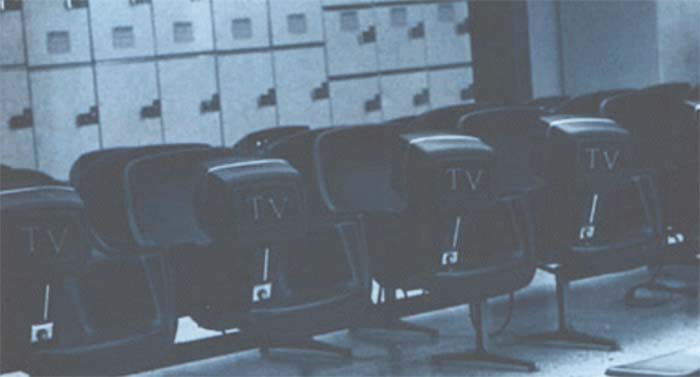Screening Our Lives: an Interview with Sherry Turkle
In her most recent book, Life on the Screen: Identity in the Age of the Internet, Sherry Turkle explores the intersections of computer culture, psychoanalysis and art. Turkle is a professor of the sociology of science at the Massachussetts Institute of Technology, a licensed clinical psychologist and holds a joint Ph.D. in Personality Psychology and Sociology from Harvard University. She is the author of several books, including The Second Self: Computers and the Human Spirit, and Psychoanalytic Politics: Freud’s French Revolution. Turkle’s work has been supported by the National Science Foundation and the MacArthur Foundation; she has received fellowships from the Guggenheim and Rockefeller Foundations.
Sherry Turkle delivered the keynote speech at ISEA97, The Eighth International Symposium on Electronic Arts that took place in Chicago (September 22-28). Beginning her talk with the quote from Walt Whitman that also stands at the beginning of her book “Life On the Screen,”
Turkle’s keynote speech mostly focused on computers as objects to think with and represent ourselves–on the issue of identity in the age of the Internet. Turkle addressed the question of how online life affects what she calls ROL (the Rest Of Life)–a term she prefers to the commonly used RL (Real Life), which implies that virtual life doesn’t have its own reality. In the age of the Internet, people visit MUDs and MOOs and choose avatars to represent themselves in virtual environments; they slip in and out of character. In a virtual community, the “players” live parallel lives by cycling through windows. The metaphors that influence our experience of life are what Turkle is most interested in, and “windows” have become one of the most prominent of these metaphors. Virtual life allows people to have a presence in several windows and contexts simultaneously.
Turkle defines the online self as a multiple, distributed, time-sharing system. Our identity in the age of the Internet is characterized by multiplicity, heterogeneity and fragmentation, which result in the need for a practical philosophy of self-knowledge. The following interview with Turkle picks up on the themes discussed in her keynote.
AW: You indicate that our use of computers as tools to design with might result in the loss of our sense of relationship to the mark. What do you think will happen to individual “style”? Will personal style become conceptual style? Will style enter into it at all? Or will it be lost forever?
ST: In the age of the Internet, people are able to construct themselves. Virtual communities can be seen as a new genre of artistic endeavor, a new form of performance art or improvisational theater. What distinguishes the virtual are the new genres developed through computer-aided design.Computer-aided design tools leave room for style to reemerge, although in a different form than before. I think we are going to become sensitive to new ways of thinking about style–and develop new abilities to recognize new genres developed through computer aided design.
Read the rest of Adrianne and Sherry’s conversation here.

